There were almost 25 participants at the three day workshop organized by Well Grounded in Yaoundé: associations of small- and medium-sized businesses, civil society organisations and community forest groups met and exchanged about their experiences of the Voluntary Partnership Agreement (VPA).
In 2010, Cameroon signed a Voluntary Partnership Agreement with the European Union to develop legal wood trade and improve forest governance. Large exporting companies quickly benefited from the opportunities offered by the VPA. Civil society has played an important role in the negotiation and implementation of this agreement, advocating for the common good, particularly that of indigenous and neighbouring communities. However, small logging companies are poorly represented in the process and the local legal wood trade is inadequately developed.
With its new project funded by DFID, “Supporting the reinforcement of main stake holder participation in the VPA process in the Congo Basin”, Well Grounded wishes to reinforce economic and social stake holders in Cameroon (CSOs, SMBs, artisans, community forests). The aim is to provide them with better representation in the decision-making process within the VPA and other processes focused on forest governance.
For this, the different parties need to get to know each other better and discuss together the challenges and opportunities. This common effort is the only way to make the VPA a tool for better local economic development and social and environmental justice.
The following organisations participated in the workshop:
1. CSOs : SAILD, Green Development Advocates, Action for Sustainable Development, FODER
2. International NGO: Rainforest Alliance
3. Associations of SMBs: Focabois, Groupement Interprofessionnel des Artisans, Cercle des Transformateurs de Bois de Douala, ANEFNTB, SOFEN (business)
4. Community forest groups: REGEFOC, FUGIRFOC/HAUT-NYONG, Regroupement des Forêts Communautaires du DJA.
The workshop started with the opportunity for all participants to clarify and harmonize their knowledge about the VPA by facilitating an exchange of views.
A presentation by Rainforest Alliance then helped give a more in-depth understanding of the results of this agreement in Cameroon, including the creation of community forestry.
Community forestry is a situation in which the communities take the role and power of the forest concessionaire. Its aim is to give local and indigenous communities control of a forest so that they guarantee its sustainable management, economic profitability and the preservation of its biodiversity for future generations.
Participants also did some group work on four themes in order to define pathways to concrete action:
• Denunciation of illegalities
• Legal wood supply
• Conservation community forests
• Support for community forests regarding wood legality and traceability.
Participants then studied the possibilities of starting common projects and some very interesting ideas came up, which will possibly benefit from support by Well Grounded in the near future.
Some examples of new learning:
- Partnerships between NGOs and other stake holders such as SCOs, community forests and businesses are possible.
- Another use of community forests is possible: the conservation community forests
Community forests were initially created with the objective of exploiting wood and timber products. But an alternative to this exploitation could be to preserve forests, with other types of activities: research, educational sessions, community gardens, responsible tourism, etc.
- Some of the stake holders directly concerned by the VPA did not know its mechanisms well before the workshop; it helped them to get a better understanding of each stake holder’s situation, and the specific challenges they meet.
- Issues of social and environmental justice regarding the VPA were also clarified.
As a conclusion, this time together allowed the different stake holders working in the field and impacted by the VPA to know and understand each other better. It also enabled the consideration of concrete collaborations, which are currently rare between different stake holders (forest logger, CSO, community forestry managers).
We are very happy about this important step forward in the multi-stake holder collaboration in Cameroon and will follow closely the development of common projects, so that we can lend our support if needed!

